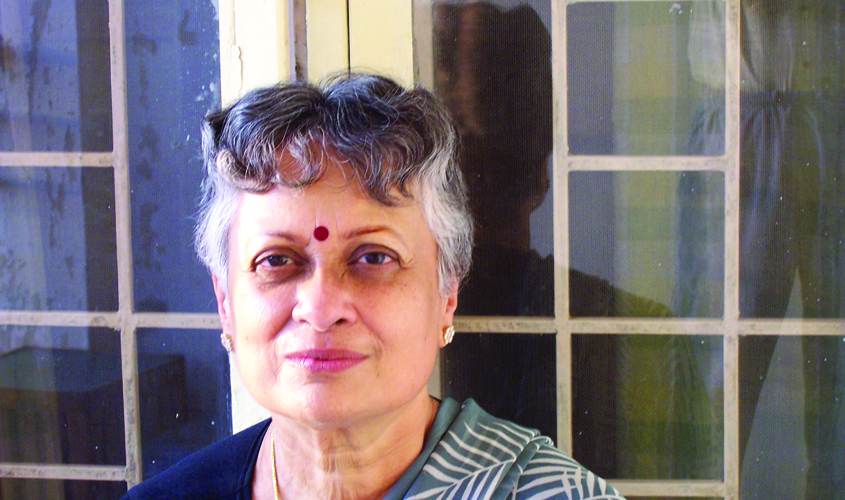Swapna Dutta has been a writer for several decades now, mostly of children’s books, with more than 50 titles to her name, including several translations. She speaks to Guardian 20 about her latest project, Second Encounter, which is an English translation of the Bengali classic novella, Je Jekhane Danriye, which was turned into a popular film in 1974 and was broadcast as a radio play by All India Radio. Dutta talks to us about what it takes to translate a classic of modern Bengali literature.
Q. When we talk about translating a story from its original language into another, how much do you think is lost in translation?
A. It depends on three factors — a) the language of the original and the language into which it is being translated; b) the competence of the translator; and c) his/her ability to identify with the book being translated. If the original book is in a foreign language some of its finer nuances could be lost in translation because of the cultural difference between the two. But if a book is translated from one Indian language into another, very little is lost in translation. For instance, a book translated from Bengali to Hindi would hardly lose anything at all because the vocabulary of these two languages have so much in common.
Q. How is modern Bengali literature fairing these days?
A. I am happy to say that the scene looks quite bright with many of our favourite classics as well as contemporary writings — both prose and poetry — being translated by really competent translators. But it is a vast field and there ought to be many more.
Q. How does one make an average Indian reader understand the nuances of Bengali culture?
A. If the reader is an Indian, there is hardly any difficulty about understanding the nuances of Bengali culture because it is a culture shared by all Indians. There could be local customs, traditions and practices which are different. But a competent translator would weave the explanation into the text in such a way that there would be no difficulty in following it. If the original mentions a practice or tradition which is very unusual, a footnote might be required. But it is seldom necessary. Again, it largely depends on the expertise of the translator.
Q. Is the job of a translator to only translate the words or does it require intensive research as well?
A. If a translator merely translates the words it would not be worth reading! The translator needs to identify with the author as far as possible and if anything in the original seems unfamiliar, he/she would certainly need to research the subject until it becomes clear as to why the author expressed himself/herself in a particular way. If the original covers a period the translator is unfamiliar with, he/she would certainly need to find out the basics. Otherwise the translation would sound lifeless.
Q. Where and how did you start, was it the first chapter onwards or did you take a different approach?
A. As this happens to be one of my favourite books I started translating it right from the author’s introduction of the book and then went on to the first chapter until the end. It was quite a continuous process.

